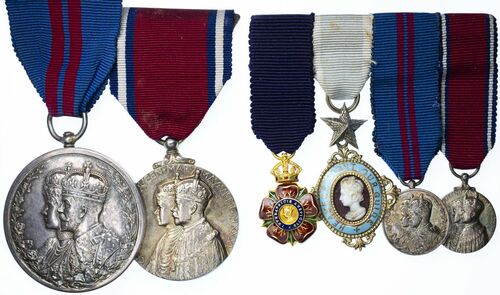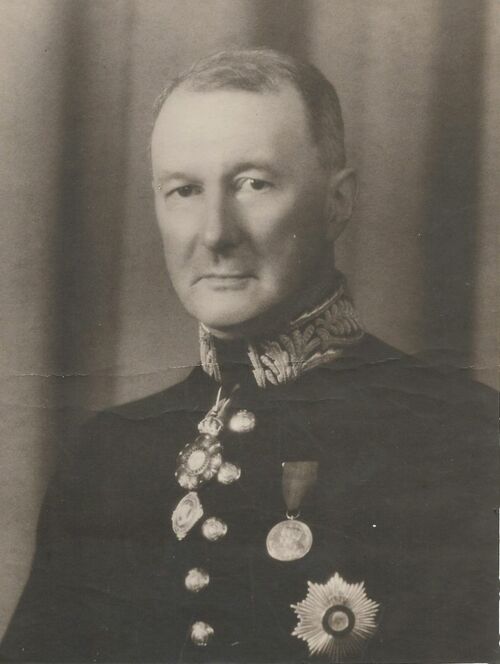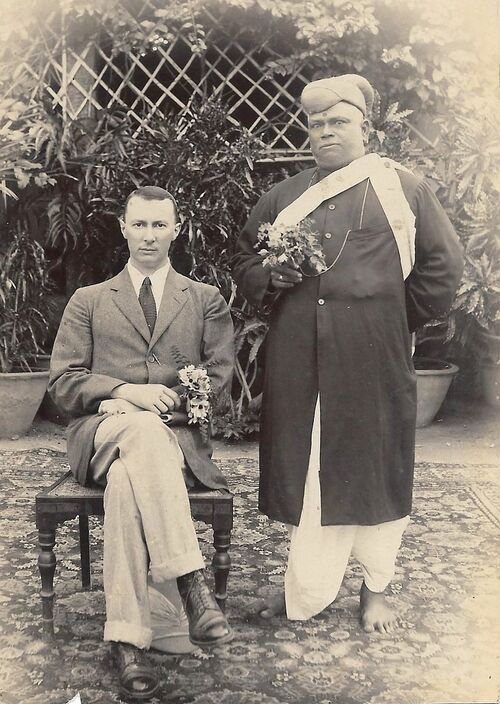Auction: 23113 - Orders, Decorations and Medals - e-Auction
Lot: 699
Sold by Order of a Direct Descendant
The mounted group of four miniature Dress medals worn by Sir H. G. Stokes, a long-served member of the Indian Civil Service and the Madras Presidency
The Most Eminent Order of the Indian Empire, K.C.I.E. Badge, Second Type, silver-gilt and enamel; The Most Exalted Order of the Star of India, C.S.I. Badge, silver, silver-gilt, enamel, and onyx cameo; Delhi Durbar 1911, silver, Coronation 1935, silver, mounted for wear, some slight enamel damage to second, otherwise good very fine (4)
Possibly the best summary of Sir Hopetoun Gabriel Stokes's long and distinguished Indian career can be found from his obituary in The Times of November 1951:
SIR HOPETOUN STOKES
FAMILY TRADITION IN MADRAS
'Sir Hopetoun Gabriel Stokes, K.C.I.E., C.S.I., who died on Saturday at the age of 78, followed both his father and his uncle in filling the highest administrative posts in the Madras Presidency.
He was born on August 1, 1873, the son of Sir Henry Edward Stokes (1841-1926), who was a member of the Madras Government from 1888 to 1893. His uncle, Sir Gabriel Stokes, K.C.S.I. (1849-1920), after being Chief Secretary to Government, Madras, was also a member of the Executive Council from 1903 to 1908, posts which the nephew filled some 25 years later. This is believed to constitute a family record.
Hopetoun was educated at Clifton College and Oriel College, Oxford, and, after passing the Indian Civil Service examination in 1895, was posted to Madras. He was at the headquarters of the Central Government from 1909 to 1914 as deputy secretary, first in the home department and then in the finance department. In 1913 he was appointed finance member of the committee then planning and supervising the building of the new Indian capital near the ancient city of Delhi. He returned to Madras in 1915 as private secretary to the Governor, Lord Pentland.
In 1919 he served on the Hunter Commission, which investigated the disorders in the Punjab and elsewhere following on Mr. Gandhi's first civil disobedience movement. In the following year he was specially chosen to be administrative adviser of the Klagenfurt Plebiscite Commission. Next, he went to the Madras Board of Revenue as member, and in 1929 he became Chief Secretary to Government. In the following year he joined the Executive Council in charge of finance. The period was one of severe stringency, and Stokes did not flinch from the thankless task assigned him of rigorous retrenchment. The Governor (the late Sir George Stanley) humorously said afterwards that Sir Hopetoun Stokes was at the time the most unpopular man in the Presidency. He succeeded in making the annual budget balance, and retiring in 1935 left the Congress Government, which took office in 1937, in a strong financial position.
He married in 1922 Alice Henrietta, second daughter of Sir Henry Hayes Lawrence, of Belgard, Co. Dublin. This gifted woman took great interest in social welfare work in Southern India, and in 1935 was awarded the Kaisar-i-Hind Gold Medal.' (The Times, 12 November 1951, refers).
Sold together with a full-size Delhi Durbar 1911 and 1935 Coronation Medal, both silver and unnamed as issued.
Subject to 20% VAT on Buyer’s Premium. For more information please view Terms and Conditions for Buyers.
Sold for
£600
Starting price
£200









